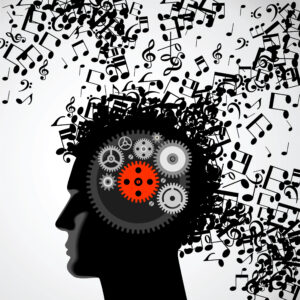 If you are reading this, you know how special music can be. Many call it the language of emotion, rightly so. But it has another side that is equally as potent. For those who play any instrument, but especially the piano, it makes their brains so much sharper in these aspects. In this article, I will guide you through many ways that the piano can affect your brain in a positive way. Once you finish reading this, my goal is for you to have a greater understanding of how your student’s brain benefits from playing the piano (or any musical instrument!) and how your piano lessons in Seattle contribute directly to their brain’s development.
If you are reading this, you know how special music can be. Many call it the language of emotion, rightly so. But it has another side that is equally as potent. For those who play any instrument, but especially the piano, it makes their brains so much sharper in these aspects. In this article, I will guide you through many ways that the piano can affect your brain in a positive way. Once you finish reading this, my goal is for you to have a greater understanding of how your student’s brain benefits from playing the piano (or any musical instrument!) and how your piano lessons in Seattle contribute directly to their brain’s development.
Dexterity and Coordination
The piano is a great example of training one’s coordination while playing an instrument. With 10 fingers functioning separately, two feet using three different piano pedals, reading music on two different staves, and so much more, it is no surprise that the piano lessons in Seattle demand high levels of dexterity and coordination. Over time, your student’s brain learns how to compile all of these activities into a single, well-oiled routine. Almost like a dance!
What we think of as “multi-tasking” is actually our brains rotating between different focuses so quickly that we are unable to distinguish it from multi-tasking, as it is not technically possible to focus on multiple things at the same exact moment. This is a skill that comes with time and training, and it influences other areas of your student’s life. With your Seattle piano instructor guiding your student’s finger dexterity and coordination will reach this amazing level of brain activity.
Problem Solving
Nothing challenges the brain quite like a difficult passage of music. Incorporating more elements of music on top of this challenging music can be quite daunting as well. As various technical elements merge into a single routine, intellectual elements can also become one. Lessons In Your Home instructors are adept at guiding your student through many different ways to problem solve challenging music.
The most astonishing thing is that these skills naturally carry themselves over to other areas of learning and thinking. Building chords and understanding intervals makes one better at math, we see how music is constructed in the same way that we construct language and grammar rules, learning about composers and music show us a rich history of music that spans hundreds of years, and this list goes on and on…
Emotional Intelligence
As mentioned earlier, music has a special place in our lives as the “language of emotion.” This is so accurate, as it shows us how to comprehend emotions far more complicated than “happy” or “sad.” As your student encounters more and more music, they see how emotion can evolve. They see how harmony, texture, tempo, articulation, volume, and so many other factors can influence the emotion of what they are playing.
We all understand “happy” or “sad” very clearly, but how would you get your student to understand deeper emotions such as “poignancy,” “inevitability”, or “closure?” It’s pretty difficult to do that without them experiencing it themselves. Music can help us understand these emotions without overloading our thoughts with too many words, which muddle our comprehension. Jacob Collier, Grammy-award winter and one of the greatest musical luminaries of our time, displays this in the perfect way. He takes a very simple tune in “Danny Boy,” and he improvises playing this tune with 18 increasingly complex emotional characters beginning with “happy” and ending with “closure.”
This video linked below is brilliant in that it shows his musical approach to each emotion, and he takes the time to explain how exactly he achieved each one.
Contact us today to find out more about our teachers. They can either come to your home to teach or can also provide online music lessons. Our virtual music lessons are taught by local music teachers who plan their lessons to suit your child.
By Brian Schappals
